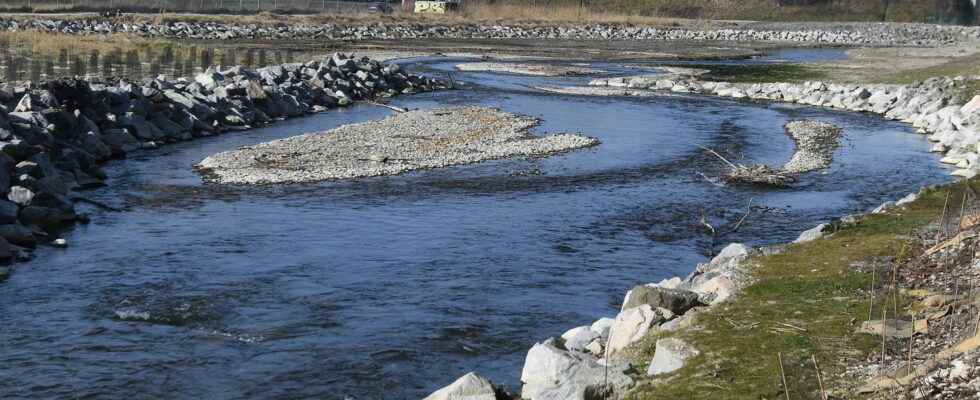DROUGHT. While the rain is scarce and the soil is dry, the government calls on the prefects to already take measures, but also the French to pay attention to their water consumption to avoid the worst this summer. The assessment of the situation.
[Mis à jour le 27 février 2013 à 10h32] France is facing a worrying drought situation and is experiencing “the driest winter since 1959”. The Minister for Ecological Transition and Territorial Cohesion Christophe Béchu is meeting today “the prefects who coordinate the seven major basins of the territory” to take restrictive measures in order to anticipate before the arrival of fine weather. In the meantime, he calls on the prefects to “anticipate” the situation and already asks them during an interview with the JDD this Sunday, February 26, to “take the measures which now make it possible to save water. “, in order to avoid the worst this summer.
Emmanuel Macron also expressed his concern on Saturday February 25 during his visit to the agricultural show, calling for the implementation of a “sobriety plan” for water, like what was done this winter for the energy. We already know that we will experience an extremely dry summer like last year, with “problems of scarcity [d’eau] : rather than organizing under duress at the last moment with conflicts of use, we must plan all that”, announced the Head of State.
Every French person must take responsibility for the drought situation that France has been experiencing for several months by adopting the right actions to save water today. Among them, we can cite not letting the water run when soaping up, using full washing machines, limiting the watering of the garden, preferring showers to baths, installing water-saving equipment, etc.
As of February 27, 2023, 5 departments are either on alert or on heightened alert and are affected by a restriction beyond vigilance on at least part of the territory. This concerns Ain, Bouches-du-Rhône, Pyrénées-Orientales, Isère (specific groundwater restrictions) and Var. In addition to these departments, Savoie is placed on alert (information and encouragement for individuals and professionals to save water). The other departments are not currently affected by any restrictions, but if the rain continues to be rare, the situation can change quickly.
What is the drought map of France?
Propluvia is the institute of the Ministry of Ecological Transition responsible for monitoring water levels and the internet platform that allows direct consultation of water restriction orders. The site includes a scalable map to view the areas affected by these prefectural decrees. Here is the map as of February 27, 2023.

There are four main levels of drought vigilance and all of them result in the implementation of specific measures.
- Vigilance drought (level 1): informing and encouraging individuals and professionals to save water.
- Alert (level 2): measures prohibiting the operation of valves, nautical activity, prohibition at certain times of watering gardens, green spaces, golf courses or washing one’s car. For farmers, reduction of levies for agricultural purposes below 50% (or ban up to three days a week).
- Heightened alert (level 3): stronger limitation of withdrawals for watering gardens, green spaces, golf courses, car washing, etc., until certain withdrawals are prohibited. For farmers, reduction of levies for agricultural purposes greater than or equal to 50% (or ban greater than or equal to 3.5 days per week).
- Crisis (level 4): cessation of non-priority withdrawals, including withdrawals for agricultural purposes. Only withdrawals to ensure the exercise of priority uses are authorized. They concern sectors such as health, civil security, drinking water and sanitation.
Individuals have a role to play in limiting drought, in particular through small daily gestures summarized by the website of the Ministry of Ecological Transition:
- Avoid letting the water run
- Limit the watering of my garden,
- Install water-saving equipment,
- Take a shower instead of a bath
- Install a rainwater collector or containers under the gutter downspouts and in the garden to water it,
- Repair water leaks,
- Avoid running your washing machine or dishwasher half empty.
